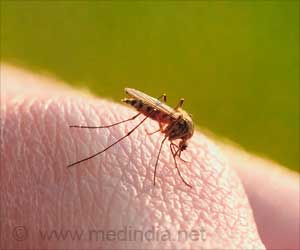Asian countries need to improve their infrastructure to prevent and manage outbreaks of dengue. So Singapore's National Environment Agency is hosting a World Health Organisation (WHO) meeting to chart a roadmap to improve their ability to tackle the disease.
Dengue is a prevailing disease for the past two to three decades in Southeast Asia and in the Western Pacific.The WHO says the frequency of dengue outbreaks is increasing and spreading, with Asian countries experiencing such outbreaks every three to five years. The challenge is to help them adopt policies from successful examples, like Singapore.
Dr Jai P Narain, Director, Communicable Diseases, WHO Southeast Asia Regional Office, said, "We need dengue control as part of public health policy. So before you start (any) development activity, you should be aware of the public health concerns.
"So all these different measures have to be put in place. So this is what we are trying to do in the strategic plan. We have a framework for the whole region to be applied uniformly in different countries."
Representatives from some member countries - including Singapore, Thailand and India and Tonga - are meeting over the next few days until Saturday to work out a strategic plan for the region.
It is felt that Asian countries are not investing enough money in hospitals and there are not enough medical professionals to deal with the disease.
Advertisement
The countries come from WHO Regional Offices for Southeast Asia and Western Pacific. Advisors to the WHO say countries have failed to put enough resources to develop vaccines. But it is difficult to develop a vaccine that is effective against all types of dengue.
Advertisement
And even success stories, like Singapore's, may have a downside.
Professor D J Gubler, Director, Institute of Asia-Pacific for Tropical Medicine & Tropical Diseases, said, "Probably the success of the Singapore programme has resulted in the susceptibility in the Singapore population. A lot of people in Singapore have not experienced dengue and therefore are not immune to dengue and they're at a higher risk of infection."
The meeting hopes to agree on a regional framework and come up with a timetable to implement the ideas.
Source-Bio-Bio Technology
SRI








